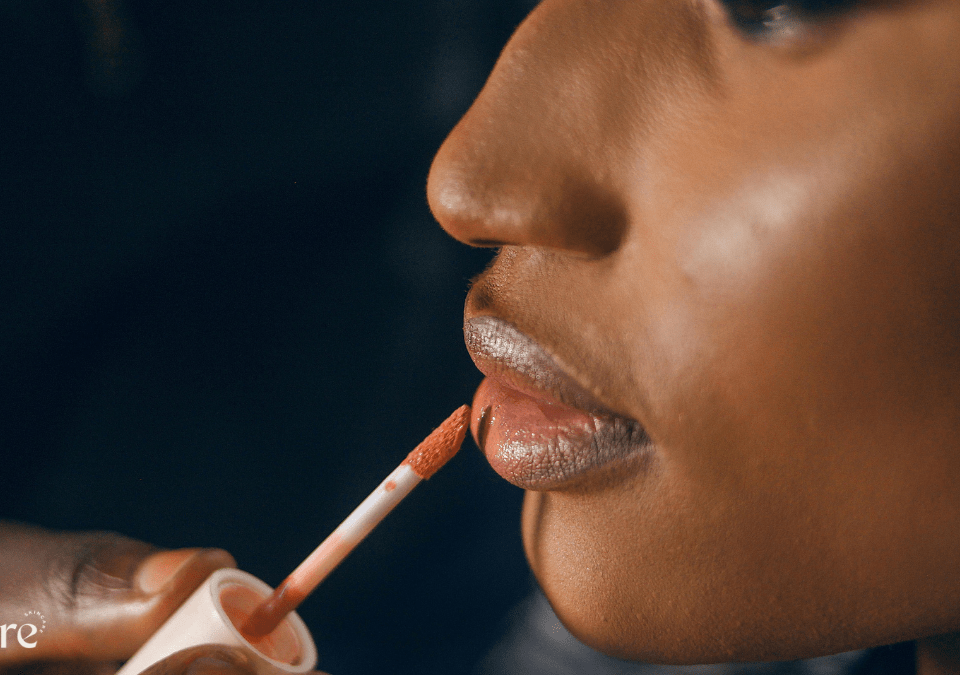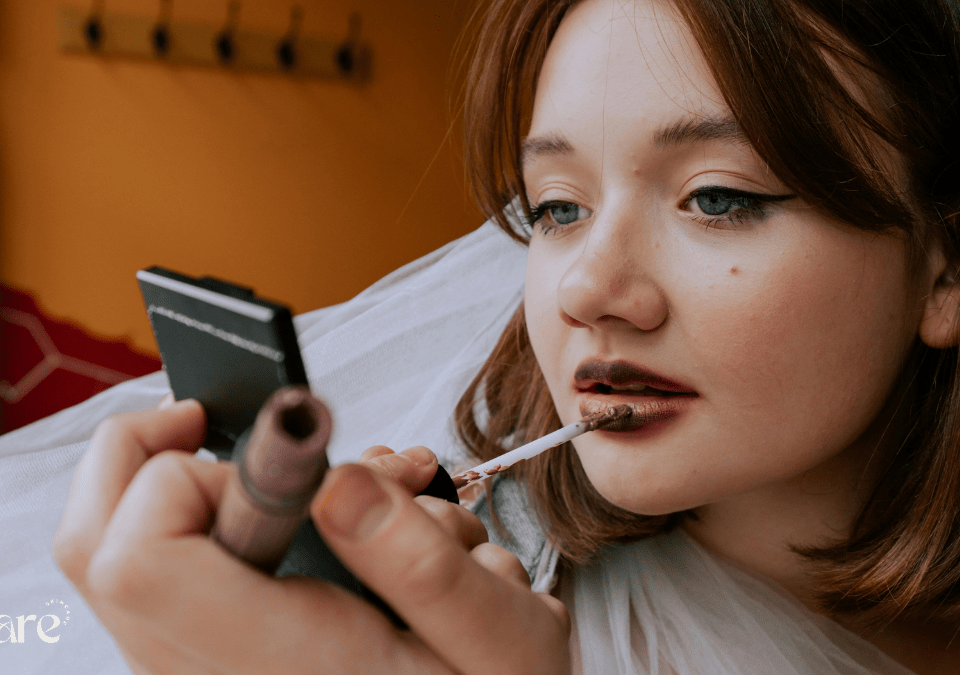Arginine in skin care is an amino acid that hydrates, protects, and repairs the skin. Known as L-arginine, it boosts moisture, fights free radicals, and supports collagen production for a smoother complexion. Safe for most skin types, including oily and sensitive, it’s found in serums, creams, and masks. Benefits include brighter skin, reduced irritation, and faster healing, with rare side effects like mild redness. Use it daily with panthenol for best results.
Arginine in Skin Care: Your Guide to This Skin-Loving Ingredient
You’ve probably heard of arginine in the context of supplements or nutrition, but did you know it’s also a rising star in skin care? This amino acid is popping up in serums, creams, and masks, promising hydration, repair, and a healthy glow. As someone who’s spent years diving into skin care ingredients, I’m excited to break down what arginine does for your skin, how to use it, and why it’s worth considering. Let’s explore its benefits, safety, and more in a way that feels like a chat with a friend who’s got your skin’s best interest at heart.
What Is Arginine and Why Is It in Skin Care?
Arginine, often called L-arginine in skin care, is an amino acid naturally found in your body. It’s a building block for proteins, which means it’s key for skin repair and resilience. In skin care products, arginine acts as a humectant, antioxidant, and skin conditioner. It pulls moisture into your skin, fights free radicals, and helps maintain a smooth, plump texture. I’ve seen it in everything from budget-friendly moisturizers to high-end serums, and it’s versatile enough for most skin types.
Why does this matter? Your skin is constantly battling environmental stressors like pollution and UV rays. Arginine steps in to support your skin’s barrier, keeping it hydrated and less prone to irritation. It’s like giving your skin a daily dose of TLC.

Benefits of Arginine in Skin Care
So, what does arginine do for the skin? The benefits of arginine in skin care are pretty impressive, but I’m not here to overhype it—it’s just solid science. First, it’s a hydration hero. Arginine draws water into your skin, making it feel soft and supple. If your skin feels tight or dry, this ingredient can help.
It’s also an antioxidant, which means it protects your skin from damage caused by free radicals. This can reduce signs of aging like fine lines over time. Does arginine make you look younger? Not overnight, but by supporting skin health, it can contribute to a brighter, smoother complexion.
Another perk? Arginine supports wound healing. If you’ve got minor cuts, acne scars, or irritation, it can help your skin recover faster. Plus, it plays a role in collagen production. Does arginine produce collagen directly? Not exactly—it’s more like a cheerleader, helping your body create the proteins that keep skin firm.
L-Arginine Topical Benefits
When applied topically, L-arginine shines. L-arginine topical benefits include soothing inflammation and improving blood flow to the skin. Better circulation means more nutrients reach your skin cells, giving you that healthy glow. I’ve noticed that products with L-arginine leave my skin feeling calmer, especially after a long day in the sun.
It’s also great for sensitive skin. Unlike some active ingredients that sting or burn, L-arginine is gentle. It strengthens your skin’s barrier, which is a game-changer if you deal with redness or flakiness.
Arginine in Skin Care for Oily Skin
If you’ve got oily skin, you might be wondering if arginine is right for you. Spoiler: it can be! Arginine in skin care for oily skin works because it hydrates without feeling heavy. Unlike thick creams that clog pores, arginine is lightweight and helps balance moisture levels. Over time, this can reduce excess oil production—hydrated skin doesn’t need to overcompensate with sebum.
I’ve recommended arginine-based serums to friends with oily skin, and they’ve noticed less shine by midday. Pair it with a non-comedogenic moisturizer, and you’re golden.
L-Arginine for Skin Whitening: Does It Work?
You might’ve seen claims about L-arginine for skin whitening. Let’s clear this up: arginine doesn’t bleach your skin or change your natural tone. However, it can brighten your complexion by improving hydration and reducing dullness. Uneven skin tone often comes from dehydration or sun damage, and arginine’s antioxidant properties help tackle that.
If you’re after a radiant look, L-arginine can support an even glow, but don’t expect dramatic whitening. It’s more about enhancing your skin’s natural vibrance.
How to Use Arginine in Skin Care
Wondering how to use arginine in skin care? It’s super easy. Arginine is found in many products—moisturizers, serums, masks, and even cleansers. Here’s a simple routine:
- Cleanse: Start with a gentle cleanser to prep your skin.
- Apply Serum: Use a serum with arginine for targeted benefits. Pat it on gently.
- Moisturize: Follow with a cream to lock in hydration.
- Sunscreen: Always finish with SPF during the day to protect your skin.
Apply arginine products once or twice daily, depending on your skin’s needs. If you’re new to it, start with a product that combines arginine with soothing ingredients like panthenol in skin care for extra comfort.
Pro tip: Check the ingredient list. Arginine is often listed as “L-arginine” or simply “arginine.” It’s usually in low concentrations, so don’t worry about overdoing it.
Panthenol in Skin Care: A Perfect Pair
Speaking of panthenol, it’s a fantastic partner for arginine. Panthenol in skin care acts as a humectant and skin soother, much like arginine. Together, they’re like a dynamic duo, calming irritation and boosting moisture. I love products that combine these two—it’s like a hydration hug for my skin.
If you’re dealing with dryness or sensitivity, look for a cream with both ingredients. They work in harmony to repair your skin barrier and keep it happy.
Is Arginine in Skin Care Safe?
You might be wondering: is arginine in skin care safe? The short answer is yes—for most people. Arginine is naturally occurring in your body, so it’s well-tolerated by most skin types. It’s non-irritating and gentle, making it a great pick for sensitive or reactive skin.
That said, everyone’s skin is unique. If you have a history of allergies, do a patch test before slathering it on. Apply a small amount behind your ear or on your inner arm and wait 24 hours to see how your skin reacts.
Side Effects of Arginine in Skin Care
Are there side effects of arginine in skin care? Honestly, they’re rare. Since arginine is so gentle, most people use it without issues. However, in very rare cases, some might experience mild redness or itching, especially if you’re sensitive to other ingredients in the product.
If you’re using a high-potency serum, overuse could potentially clog pores for some folks, but this is uncommon. Stick to recommended amounts, and you’re unlikely to run into trouble. If irritation pops up, pause and check with a dermatologist.
What Makes Arginine Stand Out?
What is the main function of arginine? In skin care, it’s all about hydration, protection, and repair. Unlike trendy ingredients that come and go, arginine is a workhorse. It doesn’t promise miracles—it just delivers consistent results. Whether you’re 25 or 55, it supports your skin’s health without overwhelming it.
I’ve used arginine-based products for years, and what I love is how they feel light yet effective. My skin stays hydrated without that greasy after-feel, and I’ve noticed fewer dry patches over time.
Personal Experience
A couple of years ago, I struggled with dry, flaky patches on my cheeks, especially in winter. I stumbled across a moisturizer with L-arginine and panthenol while researching gentle ingredients. At first, I was skeptical—could an amino acid really make a difference? After a week of using it twice daily, my skin felt softer and less tight. The redness around my nose calmed down, and my makeup went on smoother. It wasn’t a dramatic overnight fix, but over a month, my skin looked healthier and more even. Now, I always keep an arginine-based serum in my routine—it’s like a steady friend for my skin.

FAQ’s
What does arginine do for the skin?
Arginine hydrates the skin, acts as an antioxidant, and supports repair. It draws moisture in, protects against environmental damage, and helps heal minor irritation or wounds, leaving your skin softer and healthier.
Does arginine make you look younger?
Arginine doesn’t erase wrinkles instantly, but it supports skin health by boosting hydration and collagen production. Over time, this can reduce fine lines and give you a brighter, more youthful glow.
Does arginine produce collagen?
Arginine doesn’t directly make collagen but supports the process. It helps your body create proteins that contribute to skin firmness, making it a subtle ally for elasticity.
What is the main function of arginine?
In skin care, arginine’s main job is to hydrate, protect, and repair. It keeps your skin moisturized, fights free radicals, and strengthens your skin barrier for a smoother, healthier complexion.
Conclusion
Arginine in skin care might not be the flashiest ingredient, but it’s a reliable one. From hydrating oily skin to soothing irritation and supporting collagen, it’s got a lot to offer. Whether you’re dealing with dryness, dullness, or just want a healthier glow, arginine can fit into your routine. Pair it with ingredients like panthenol, use it consistently, and your skin will thank you. It’s not about chasing trends—it’s about giving your skin what it needs to thrive.
Read More Articles Here:




